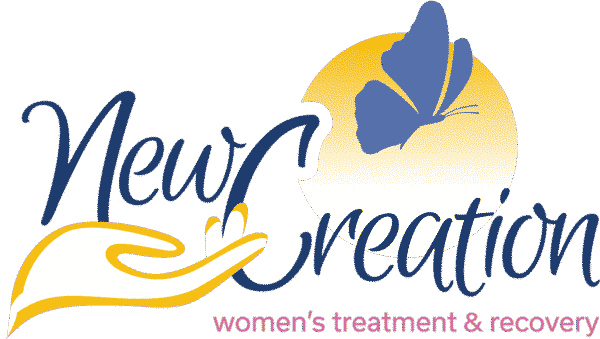Marriage and addiction is a serious choice and is one that shouldn’t be taken lightly. Married couples typically need to find something that holds them together and keeps them engaged in each other’s lives. Children often form this role for many people, as they work together to raise happy and prosperous children. Other couples stay together after the romantic spark has gone and remain great friends and partners in life. And some remain child-free but roam the world as adventure partners.
However, other people stay together for less favorable reasons. For example, some married couples stick together because they cannot afford to live apart, even though they hate each other. Still others stay together out of fear or co-dependency, believing that they could never find another person to take their partner’s place. And still others – tragically – stick together due to a co-occurring drug disorder.
That’s because drug use often forms a powerful bond between individuals, one that moves past PTSD, anxiety, depression, and other types of trauma to fuse them securely. Individuals who abuse methamphetamine, alcohol, benzos like Xanax, opioids, or opiates like heroin and Oxycontin may support each other’s addiction and use it as a way to stay close and – unexpectedly – happy together.
However, dual-diagnosis, detox, and other types of rehab treatment options can provide couples in this tragic situation with the chance to escape. It will also give them an opportunity to understand their relationship in more depth and to decide if their bond is built on compassion and love or if they were only held together by their substance abuse problem.
Substance Abuse May Threaten Many Marriages
Substance abuse of any kind – whether it’s heavy alcohol use or a dangerous addiction to heroin – will challenge any relationship, no matter how strong it started. For example, an article at “Psychology Today” debated whether or not addiction and substance abuse were automatic grounds for divorce. They concluded that marriages could survive this problem with a lot of help and dedication.
In a similar article by the “American Association for Marriage and Family Therapy,” a full exploration of the nature of relationships with addiction showcased the complexity of the situation. For example, one partner may abuse benzos and miss work, which forces their partner to cover for them. Even worse, the couples may experience extreme depression and anxiety due to arguments and fights.
However, there are other situations in a relationship that might make substance abuse seem positive. For example, one partner may have a hard time opening up until they snort cocaine. The excessive energy caused by this substance makes it easier for them to communicate with their partner, which does lead to seemingly better personal interaction and an increased understanding of each other.
While these interactions may seem positive on their surface, their root is negative and destructive. For example, the ease of communication provided by cocaine abuse in the scenario mentioned above stunts a relationship’s growth. Rather than learning together in a sober and measured way, a couple only connects when one of them is high and likely not processing information as well.
In a sense, it creates a crutch that doesn’t help a person grow but limits their progress by forcing them to rely on a substance to communicate. Unfortunately, these seemingly positive results may inspire the other partner to try a drug to relate to their spouse. Even worse, a couple may have met due to narcotics and base their relationship heavily around their mutual love of various substances.
People in this situation often fall into what is known as a co-dependent relationship. This situation is one that can be dangerous and even deadly because a couple’s bad behavior will be rewarded and reinforced. Even worse, the couple may feel happy in their relationship and believe that their mutual drug use is the reason for their joy.
Drug Use May Bind Couples Together
Individuals looking at a drug-using romantic couple may make a lot of assumptions about the quality of their relationship. Various types of media, including movies and more, typically portray these relationships as not just problematic but dangerous. Drunk couples fist fighting in “hard-hitting” films is likely the image most people have of a drug-using couple’s relationship. And in many situations, this perception is a reality in many people’s lives.
However, the full scope of these types of relationships is always more complex, and the scary fact is that couples who abuse drugs together may not only be content but happy together. This fact was discussed in the ground-breaking study “I Love You…and Heroin” several years ago. Multiple romantic partnerships were examined to gauge how co-occurring drug use in both partners affected the quality of their relationship.
What this study found was surprising and disturbing. While many drug-abusing couples struggled to maintain a safe and stable relationship, other drug-using couples stated that they were happy together. And this happiness made it very unlikely that either partner – or both – would ever receive rehab treatment. Simply put, these individuals didn’t believe that they needed detox, dual-diagnosis, or other recovery methods because they were not only happy doing drugs but were happy because of drugs.
For example, a couple may both be addicted to methamphetamine and find its effects very pleasurable. So when they do this drug together, they experience powerful positive emotions that reward them for their drug use. As a result, the two believe that their drug use is a good thing. In the previously mentioned example, some couples may only feel like they connect when abusing drugs.
It may be hard for individuals who don’t use drugs to understand this situation. The negative public perception of drug use has been fueled by alarmist – though arguably well-meaning – propaganda from the government and has created an aura of danger around drugs that, while accurate, doesn’t reflect why people use drugs. People don’t snort cocaine or shoot heroin because they are illegal or immoral but because they cause pleasurable reactions in their bodies and their minds.
Unfortunately, these euphoric releases of endorphin are paired with dangerous health risks, such as increased heart rates, damage to the brain cells, issues with various organs in the body, and a multitude of other concerns. However, couples who abuse drugs together either don’t worry about these problems – due to the “Superman” perception of invincibility many have at various points in their life – or don’t care about these issues at all.
This type of relationship can only be defined as co-dependent, and it is a particularly dangerous type of partnership. For example, there have been many instances of co-dependent relationships based on drugs collapsing and causing serious issues in a person’s life. Let’s take a brief look at one such example to get an idea of why co-dependency and drug abuse in relationships are so dangerous.
A High-Profile Example of Marriage and Addiction
Over six years ago, the heir to Tetra Pak, Hans Kristian Rausing was arrested for the possible murder of his wife, Eva, who was found dead in Belgravia near London. This cause was well-known because both of these individuals were billionaires who suffered from addiction. About 25 years before Eva’s death, they had met in a rehab facility in California and fell immediately in love.
Unfortunately, these two insanely-wealthy individuals never did get a handle on their drug addictions. In fact, the two were mostly unknown until a 2008 bust at the American Embassy in London found 10 grams of crack cocaine, almost three grams of heroin, nearly three grams of illegal diet pills, and 52 grams of cocaine from their home. Clearly, the two still had a dangerous marriage and addiction problem together.
Among friends and family members, the two were known to be a very happy couple and raised four children together before Eva’s untimely death. And while Hans was initially arrested on suspicion of murder, the coroner reported that her death was caused by a drug overdose and was not by Hans. However, Hans – who couldn’t bear to let his deceased wife go – hid her body for over two months and was charged with a crime for that.
This tragic situation is one that plays out in many married couples’ lives but in often less severe ways. When both partners are addicted and use together, they create a sense of positiveness and togetherness that they can’t get in any other way. Sadly, this situation traps them in a cycle of abuse that strong-arms them into continual abuse of multiple substances.
Marriage and Addiction Inevitably Tears Up Lives
The heart-wrenching story above details just how problematic drug abuse is for relationships. Thankfully, there are many ways to get out of this situation. For example, an article on “Psychology Today” discussed the ways that high-quality family therapy could help couples better understand each other and avoid the dangers of addiction and substance abuse.
However, couples who are both addicted to drugs are walking a fragile line between false happiness triggered by drugs and a complete collapse. Thankfully, treatment methods like dual-diagnosis, detox, and behavioral couples therapy may provide married individuals with the chance to escape the grip of addiction. For example, a study entitled “Behavioral Couples Therapy for Substance Abuse: Rationale, Methods, and Findings” concluded that such therapy could provide an escape from the grip of drugs.
In a similar study, entitled “Behavioral Couples Therapy for Alcoholism and Drug Abuse,” a methodology for this recovery and treatment method provided a useful guide to sobriety. This article suggested sobering up both partners with detox, working them through the 12 step program, and caring for them together in a group-therapy session with dual-diagnosis care.
By working together, a married couple can learn more about their co-occurring addiction and the nature of their co-dependency. In this way, they have a strong chance of beating drug addiction and walking away with a robust and newly sober relationship. Sadly, many relationships can’t survive this sobriety but losing somebody who inspires drug abuse may be necessary to beat addiction for good.
Get Help Together
As you can see, dual-diagnosis treatment alongside 12 step and detox can help propel your recovery from addiction. In this way, you and your spouse don’t have to live with trauma, PTSD, anxiety, depression, and other issues with your mental health. Just as importantly, you can rebuild your relationship by focusing on that which matters the most to you.
However, you both need to be on the same page during this process to ensure that everything goes smoothly and efficiently. If you’re ready to quit heroin, but your spouse keeps trying to get you to use benzos, drink alcohol, abuse Xanax, or try prescribed opioids, your recovery is going to be impossible. In this situation, you may have to let go of your relationship and find someone who supports your sober lifestyle.
Making this choice is not going to be easy for anybody who finds comfort in their relationship due to a co-occurring addiction to opiates, methamphetamine, or any benzodiazepines. As a result, individuals in this situation need to reach out to professionals for help to beat this disease and minimize the trauma that drug abuse has on their lives as couples and – just as importantly – as individuals.
So please, please don’t hesitate to contact us today to schedule an initial appointment with our drug care specialists. Our professionals have years of experience in their field and will work hard to help you overcome this dangerous problem. Just as importantly, most of our experts have real-world experience with addiction and have used rehab and detox to overcome their substance abuse problems.
There’s no shame in admitting that you need help, so let us guide you to a sober and happy lifestyle. Whether you want inpatient our outpatient care, we can help you better understand your needs and provide you with the dual-diagnosis treatment that you need.



